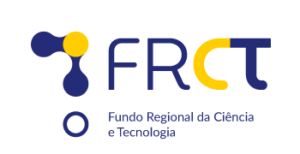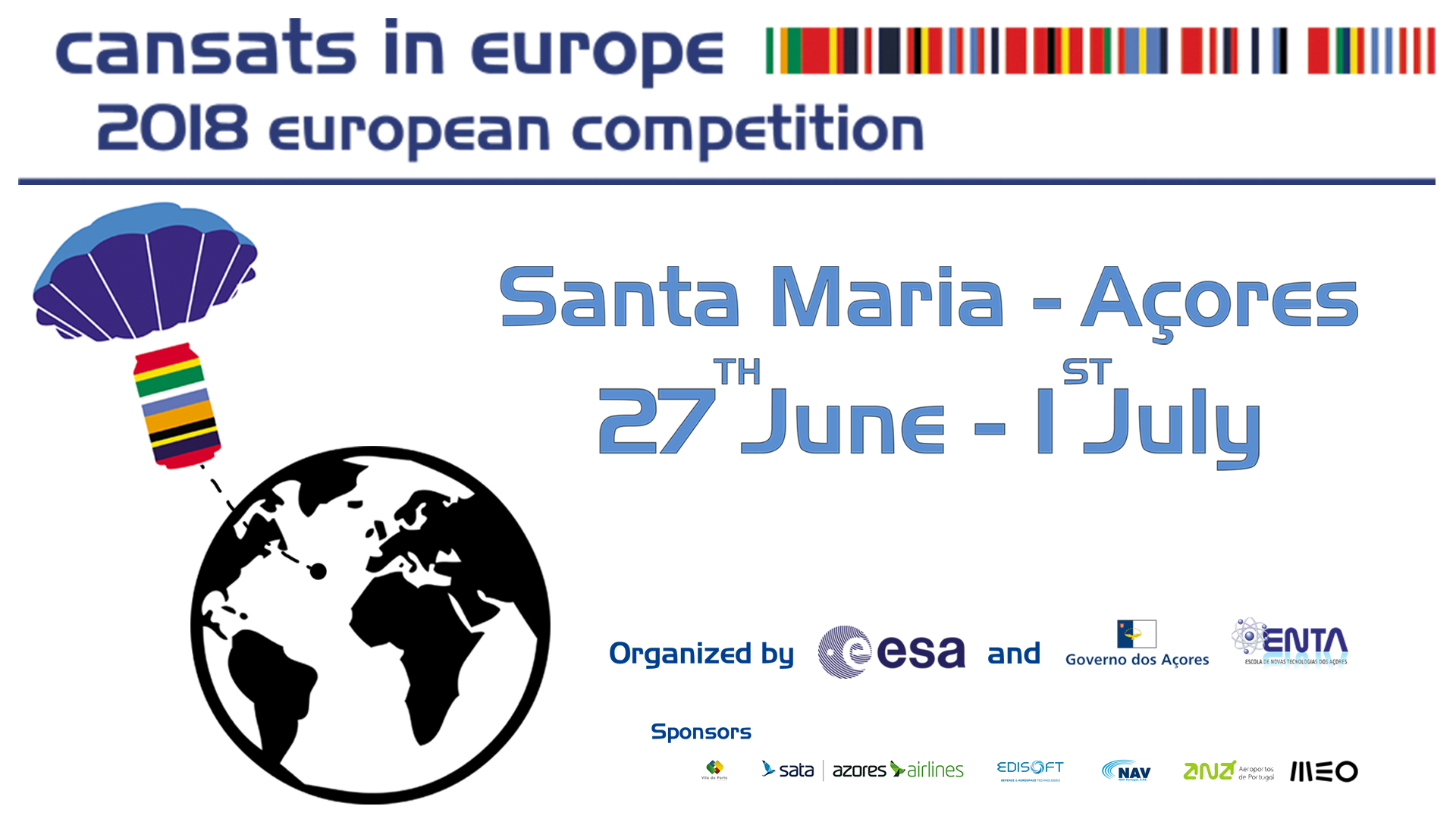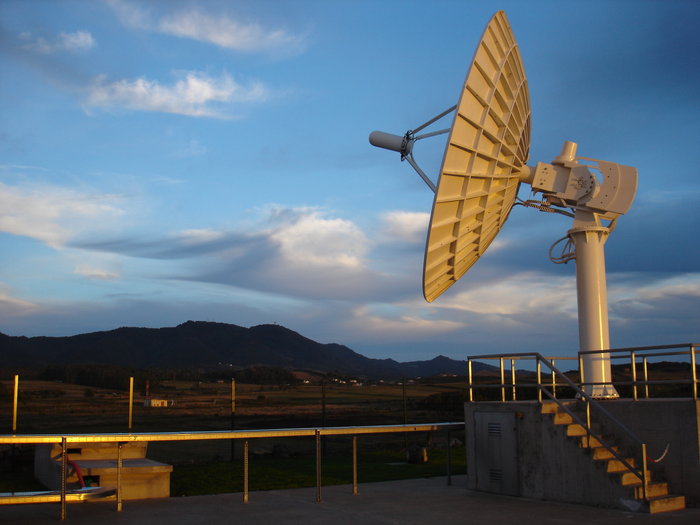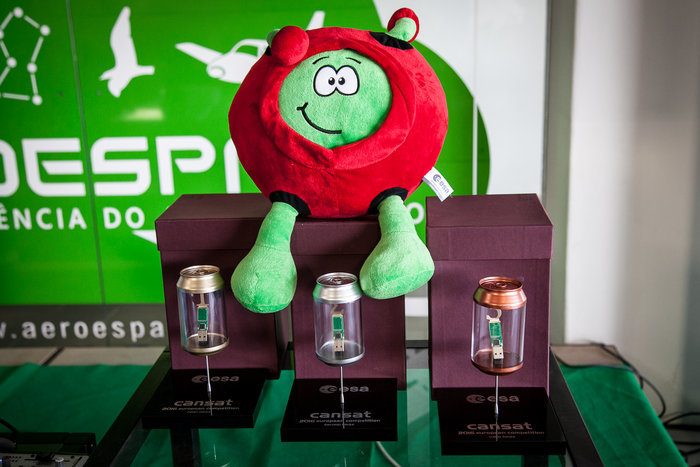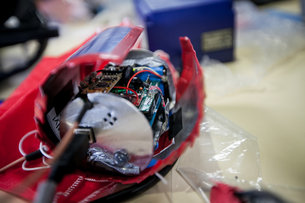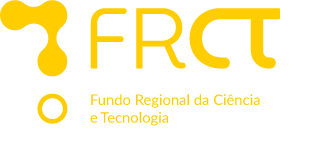And the 2018 European CANSAT Competition finalists are….
8 de Junho de 2018
After the completion of CanSat national competitions in Europe, ESA Education is delighted to announce the finalist teams of the Europe CanSat Competition 2018!
This year, a record high 18 different ESA Member or Associate States will participate in the European CanSat competition. This will be hosted on ESA’s behalf by the Fundo Regional para a Ciência e Tecnologia (FRCT) and partners on the island of Santa Maria in the Azores, Portugal, from 27 June until 1 July.
The finalist teams can now begin to look forward to an exciting and no doubt challenging five days, during which they will test and launch their CanSat and present their findings to a jury of space experts.
The finalist teams and their elective missions are:
EcoSat, Austria: Aiming to increase awareness of local air quality problems by measuring particulate matter and volatile organic compounds in the air.
DsanG, Belgium: Modelling and investigating what happens to the human circulatory system during a rocket flight.
Hatalom, Czech Republic: Retrieving a soil sample in order to scan for signs of life.
AnaCAN Skywalker, Denmark: Investigating the atmospheric properties during the descent of the CanSat.
Skylark, Finland: Using an IR camera to remotely sense the ground temperature and identify areas of interest. Starbugs, Germany: Demonstrating how a CanSat, simulating a ground station, can be used as a radio relay platform.
Zephyrus II, Greece: Using a camera to scan for suitable conditions to sustain life, and landing their CanSat autonomously.
HunSat, Hungary: Using a tele-command system in order to remotely control and land their CanSat.
Taistealai, Ireland: Using a range of on-board sensors to determine if a planet can support life.
_enforce, Italy: Using Artificial Intelligence (A.I.) and a video feed to recognise a suitable landing point and autonomously land there.
CanX, The Netherlands: Determining the local air pollution by measuring the absorption of solar wavelengths.
Plastic Fantastic, Norway: Making use of on-board sensors to determine if there are microplastics in the atmosphere.
CanSatieros, Poland: Deploying a moving rover on the Earth surface to take photos and videos.
GSat, Portugal: Operating a CanSat that will act as a proof of concept for a mission to determine if life exists on another planet.
Canescent, Romania: Analysing the behaviour of the Earth’s magnetic field to determine if the magnetic poles are shifting.
CanSat Axular, Spain: Remotely measuring and classifying the terrain hardness, in order to determine a suitable landing spot.
Sorundakosmonauterna, Sweden: Measuring greenhouse gases (CO2 and CH4) to help identify polluted areas.
AWSCanSat, United Kingdom: Using a controlled, vertical landing system in order to demonstrate potential reusability.
In addition to the 18 finalist teams from ESA member and associate states, this year a special team will join as guest competitor: Team Hosei
Daini Physics Club, winner from the Japanese National CanSat Competition. They will demonstrate how a CanSat can be used as a search and rescue beacon to locate stranded survivors.
ESA is looking forward to see these amazing missions at work!
The 2018 European CanSat Competition
An outline of the activities the teams will be involved in on each day is provided below. We are already excited and cannot wait to meet you all in the Azores!
| Day 1 | Afternoon: Teams arrive in Azores, Portugal Evening: Welcome meal |
| Day 2 | Morning: Opening ceremony Afternoon: CanSat technical inspections, drop tests and first presentations to the jury |
| Day 3 | Launch day! |
| Day 4 | Morning and afternoon: Final presentations to Jury Evening: Award ceremony |
| Day 5 | Morning: Leisure activities around Santa Maria Island Afternoon: Depart Azores |
ESA would like to extend final congratulations to all the participants and winners of national competitions, as well as the teams selected directly by ESA, for their enthusiasm and passion. ESA is also grateful of the efforts of the national competition organisers, including ESA’s ESERO national offices, without whom the European CanSat Competition would not be possible!
Source: http://www.esa.int/Education/CanSat/And_the_2018_European_CanSat_Competition_finalists_are
